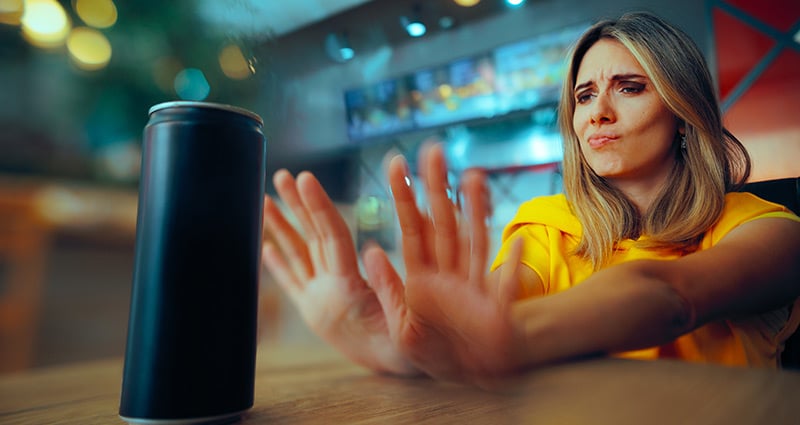Energy drinks are everywhere these days. What was a niche drink a few decades ago has blossomed into a huge industry that rivals the soda industry on store shelves.
Many people enjoy the feeling of a “pick me up,” and it can sometimes help with staying alert during a long day of classes or a long night of homework, and provides an added boost of energy when playing sports. But energy drinks are also loaded with sugar and additives that have plenty of negative side effects.
How Do Energy Drinks Work?
Caffeine and sugar do the magic, mostly. The Centers for Disease Control and Prevention says energy drinks contain added sugars and large amounts of caffeine, along with other additives like guarana and taurine. These additives work by enhancing alertness, energy and attention.
What Are the Side Effects of Energy Drinks?
Because of the large amount of sugar in energy drinks, people — and especially young people — who regularly drink them may be at risk of becoming overweight and developing Type 2 diabetes.
According to the National Institutes of Health, a single 16-ounce energy drink may contain 54 to 62 grams of added sugar, exceeding the maximum recommendation of added sugar for an entire day. Side effects of the additives in energy drinks include increased heart rate, breathing rate and blood pressure levels.
Other, more immediate side effects of energy drinks include:
- Dehydration
- Irregular heartbeat
- Heart failure
- Anxiety
- Insomnia
Are There Any Healthy Energy Drinks?
Sugar-free energy drinks are purported to be healthier, but not enough research exists showing that they are truly healthy. Caffeine and other stimulants are still present and can affect your heart rate and blood pressure.
If you’re looking for a quick and healthy pick-me-up, alternatives to energy drinks include:
- Water, including unsweetened flavored water. Dehydration is often the culprit of low energy.
- Unsweetened tea varieties, which are naturally caffeinated and can be served hot or cold.
- Hot or iced coffee
- 100% fruit or vegetable juice
- Whole fruits, especially those with high water content, such as melons. You’ll get an energy boost, a satisfying and healthy snack and it can aid in hydration.
What About Sports Drinks?
The U.S. Anti-Doping Agency reports that sports drinks are typically safer than energy drinks, but look closely at their ingredient lists. Many sports drinks are just as sugar laden as energy drinks.
The difference between the two is that while energy drinks are loaded with caffeine and legal stimulants, sports drinks aren’t. Instead, they contain electrolytes and other ingredients designed to help hydrate during and after physical activity.




